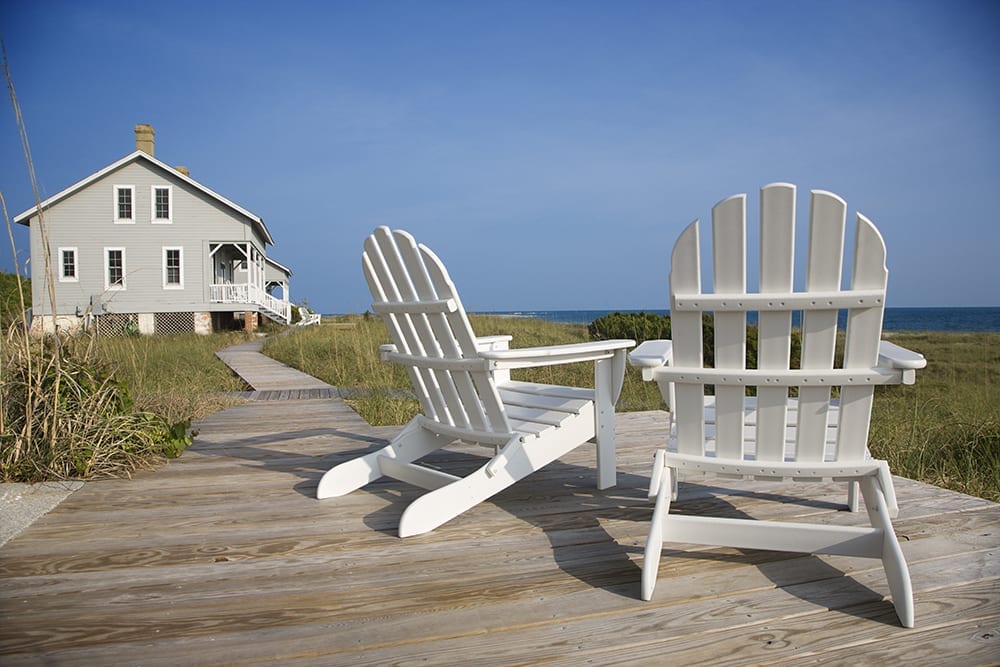
By Kelsey Trumbull
Feb 20, 2018Who hasn’t dreamed of having a home on the water? Whether it’s beach, lake, or riverfront, a waterfront home can be a great investment but should not be made without the proper research and consideration. Before making any costly mistakes, you need to know what to consider when buying a waterfront home.
Use an Experienced Realtor: Not all realtors have worked with waterfront homes, and therefore are unaware of the complexity involved in buying one. Choose a realtor with plenty of experience so they can easily guide you through the unique homebuying process. While the cost of using someone with more waterfront know-how might be higher, they could save you a lot of money and heartbreak down the road.
Property > Structure: Before getting to far in love with a home, you need to really analyze the actual piece of property. If there is a dock with watercraft access, ensure the depth of the water is adequate. Make sure the water is safe to swim in, as you don’t want to have any unexpected injuries from murky water, large deposits of algae, or a rocky bottom. Don’t discover the view isn’t great until too late. Consider the amount of privacy you want, as there might not be as much as you think (there is a huge difference between a public and private beach). How easy is it to access the water from your home, and vice versa? Some homes might have stairs leading down to the water or other paths, so ensure you will be comfortable using the access both now and in years to come. Bottom line, it is possible to change the house, but not so much the piece of property. That doesn’t mean you should ignore the structure altogether. Waterfront homes require extra measures to ensure they can withstand the elements. For example, for homes on/near salt water need to use stainless steel metals to avoid corrosion and will be more likely to need storm shutter for potential hurricanes. Research the effect of the elements on all aspects of living before making any decisions, as it’s more than just the house that can be impacted.

Loan First, Then House: Since buying a waterfront home is usually more expensive than buying a landlocked home, you’ll most likely need to get a jumbo loan. Typically, these loans take longer to obtain so you’ll want to start the loan process early, so you don’t miss out on the home of your dreams. To find out how much home you can afford, contact a trusted lender to get pre-qualified for a loan.
Property Improvement: Don’t buy your dream home and then find out you can’t make any improvements to the property! Do your research and check with the city to see if there are any limitations on the property concerning the removal of trees/bushes, building a pool or other structure, or even adding a dock. Depending on the type of waterfront, you should also check to see what activities are allowed, such as jet skiing, as there could be restrictions.
Flood Insurance: Owning a waterfront home comes with the potential of floods. While flood insurance can be expensive, it is a necessity. You might want to consider the possibility of the sea level rising and what kind of flood mitigation the property has. Another consideration, dependent on the location you’re buying, is that you might need more insurance than just flood. Knowing exactly what kind of insurance you need and where to get it is why we emphasize the need for an experienced realtor and lender!
Talk Around: Utilize the neighbors! They have most likely lived in the area for a while and know all the ins and outs. They can tell you about what issues you might face and might even have ‘insider’ information about the home you’re interested in. Also, they went through the waterfront homebuying process and might have some tips for you.
Middle of Nowhere: If the property is in a rural location there might be some new experiences for those who’ve been spoiled with the city/suburban conveniences. You most likely had electricity, water, sewage, cable, internet, etc. readily available, but that is not always the case with homes that are remote areas. In some cases, you might have to bring those utilities onto the property, which can get expensive. Do some investigating to see what the property has to offer, and how much it would cost to get what you need.
Responsibilities: Becoming the owner of a waterfront property also comes with becoming the caretaker of said property. If you are part of a HOA, there could be specific rules regarding the upkeep and maintenance of the property. If you are unable to do so yourself, consider adding a caretaker or other services into your budget.
Owning a waterfront home can become a reality, but make sure you are educated in what it really takes to purchase one. Do thorough research to become aware of any potential issues or unexpected costs. With the help of a knowledgeable realtor, lender, and these tips, you should have no problem getting the waterfront home of your dreams.
If you have any questions or want more information about the homebuying process, contact one of our licensed Mortgage Loan Originators. If you are ready to begin the process, click here to get started!
These blogs are for informational purposes only. Make sure you understand the features associated with the loan program you choose, and that it meets your unique financial needs. Subject to Debt-to-Income and Underwriting requirements. This is not a credit decision or a commitment to lend. Eligibility is subject to completion of an application and verification of home ownership, occupancy, title, income, employment, credit, home value, collateral, and underwriting requirements. Not all programs are available in all areas. Offers may vary and are subject to change at any time without notice. Should you have any questions about the information provided, please contact us.